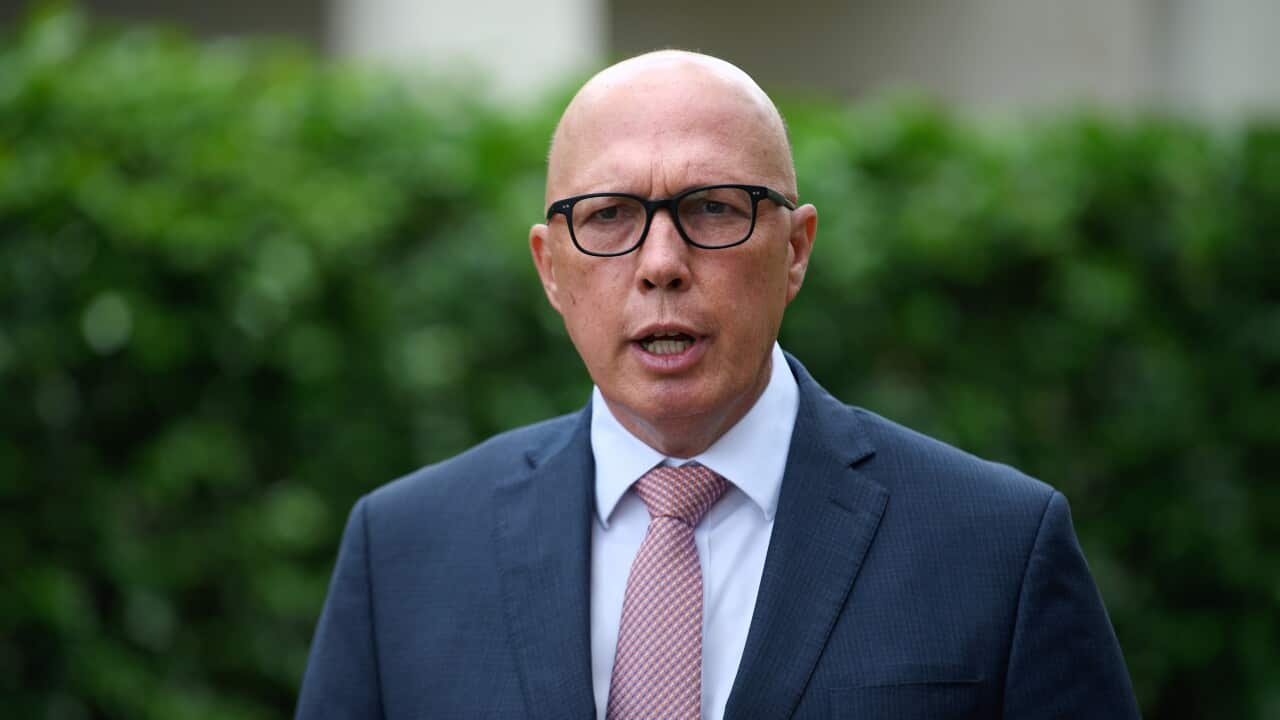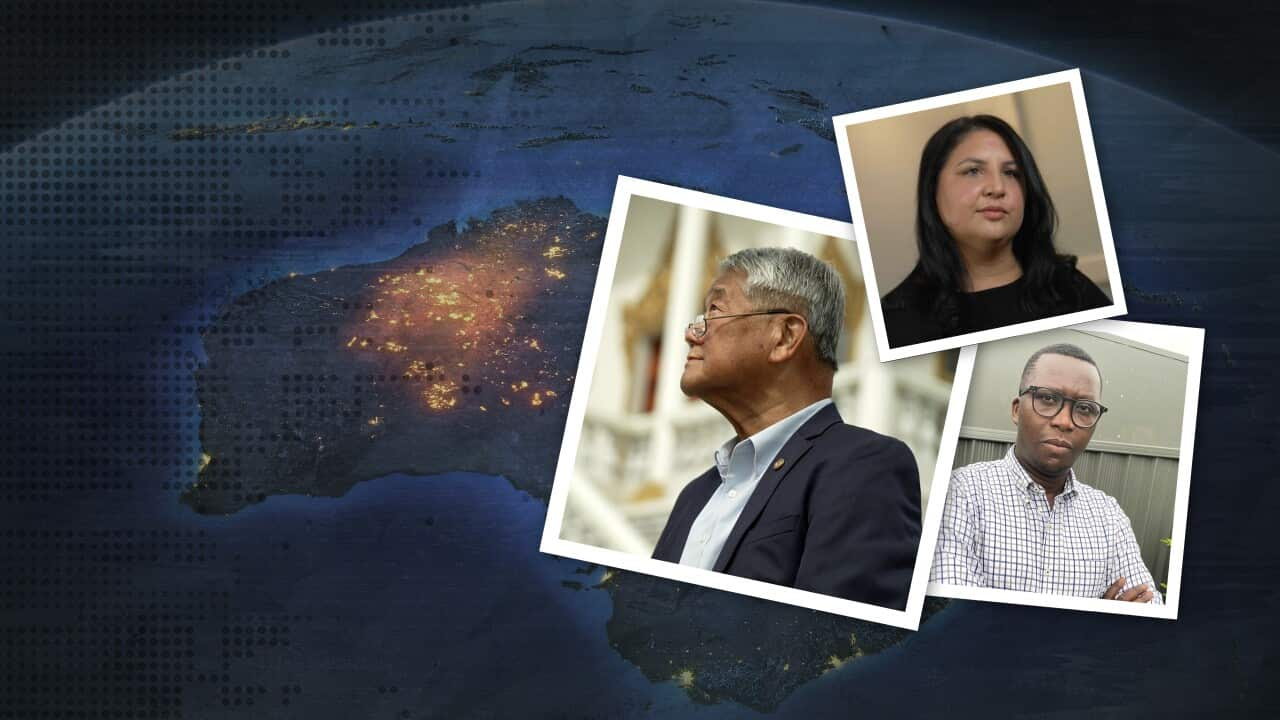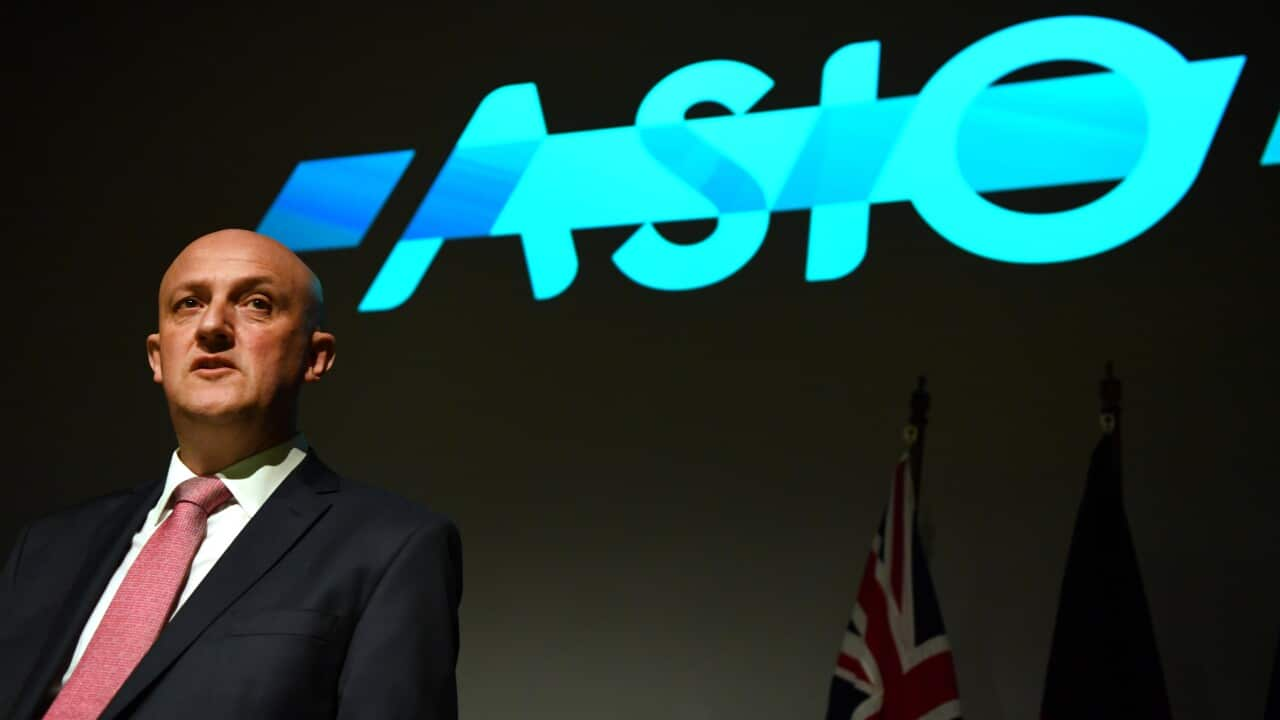Key Points
- Australia's intelligence agency has revealed that an unnamed former politician spied for a foreign nation.
- The Opposition leader has called for the laws to be made "retrospective" to enable the person's prosecution.
- An expert has told SBS News that it would be "unrealistic" to make the laws retrospective.
A former politician who "sold out Australia" to a foreign nation cannot be charged under our current laws, according to the Australian Security Intelligence Organisation (ASIO).
"Several individuals should be grateful that the espionage and foreign interference laws are not retrospective," ASIO director-general
Former federal treasurer Joe Hockey said this was "unacceptable" on Thursday morning, as it allows "traitors" to "be forgiven and walk off into the sunset".
Opposition leader Peter Dutton went a step further and suggested the existing laws should be changed to prosecute people "retrospectively".
So, how do our espionage laws work?
What are Australia's surveillance and espionage laws?
Our foreign interference laws are relatively new; there was no legal framework to prosecute people under until Malcolm Turnbull's government
Professor Rory Medcalf, head of the National Security College at the Australian National University, said the legislation followed growing concern, both in the intelligence agencies and the media, over possible acts of foreign interference.
"That sounds extraordinary, but it just shows how naive Australia was about the risk of foreign interference and espionage," he told SBS News.
He clarified that, in order to prosecute, a dossier of evidence has to be put together by the Australian Federal Police, not ASIO.
"Although ASIO has powers to collect intelligence and monitor security risks, it doesn't have the powers of arrest and laying charges. That's a job for the federal police," Medcalf said.
Why are our espionage and surveillance laws not retrospective?
In short, it would be highly unusual to prosecute someone under any criminal law that did not exist when they committed the act.
The Law Council of Australia, which provides analysis around maintaining and promoting the rule of law, clearly states that laws need to be "readily known and available" at the time an alleged offence is committed.
"People must be able to know in advance whether their conduct might attract criminal sanction or a civil penalty," the council's Rule of Law Principles reads.
Medcalf said it was "unrealistic" to make the laws retrospective.
"I don't think that either side of politics would have agreed to the laws being retrospective because it could have opened up to all sorts of people to retrospective prosecutions," he said.
"I think the laws have had a deterrent effect so that there probably is less activity, not zero, but less activity than there otherwise would be."
In 2020, a Victorian businessman and former Liberal candidate became the first person to be charged under the 2018 foreign interference laws.
Calls for ex-MP 'traitor' to be named by ASIO are 'unproductive'
Burgess has been praised for the transparency of his annual threat assessment address, with several politicians respecting the sensitivity and repercussions of revealing who his remarks alluded to.
However, Dutton has joined Hockey's call for the "traitor's" identity to be revealed, arguing it leaves "a cloud hanging over everybody else" working in parliament.
Medcalf said it is unproductive to point fingers at either political party and instead suggested ASIO would better serve the public interest by releasing two other pieces of information.
Firstly, he would like the motive of the individual — whether it be money, political ideology, ego, or blackmail — to be revealed, saying this would be "very helpful in building antibodies in our parliament against future risks like this".
Secondly, ASIO should "specify which country was behind this act of interference and espionage," he said.
"I think it's reasonable to speculate that the country in question is the People's Republic of China because no other country has both the motive and the capability to attempt something like this against Australia."












